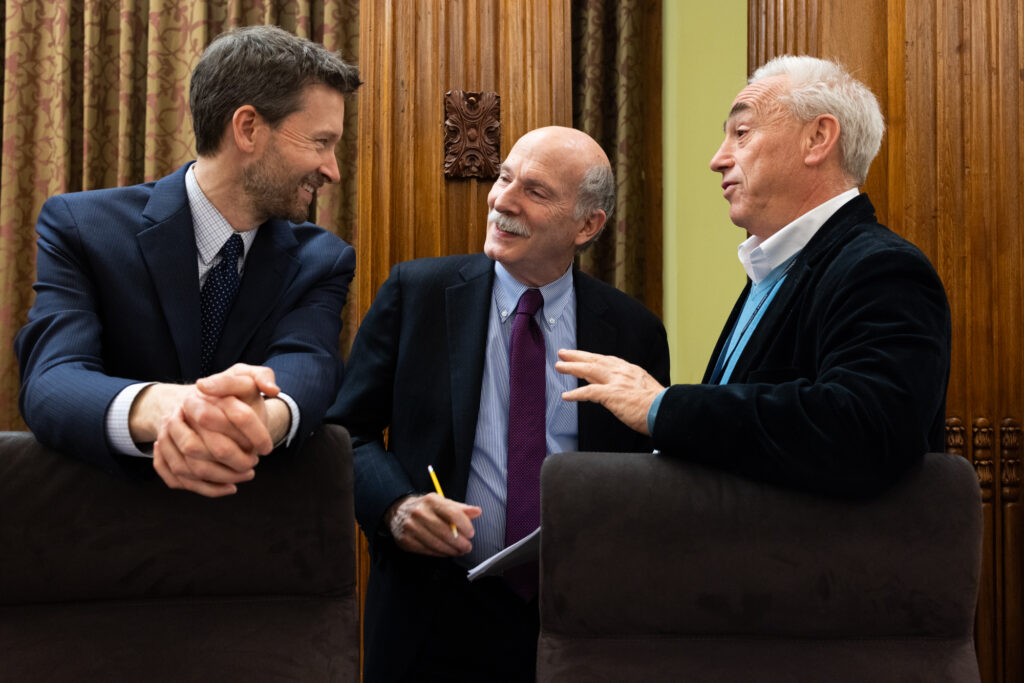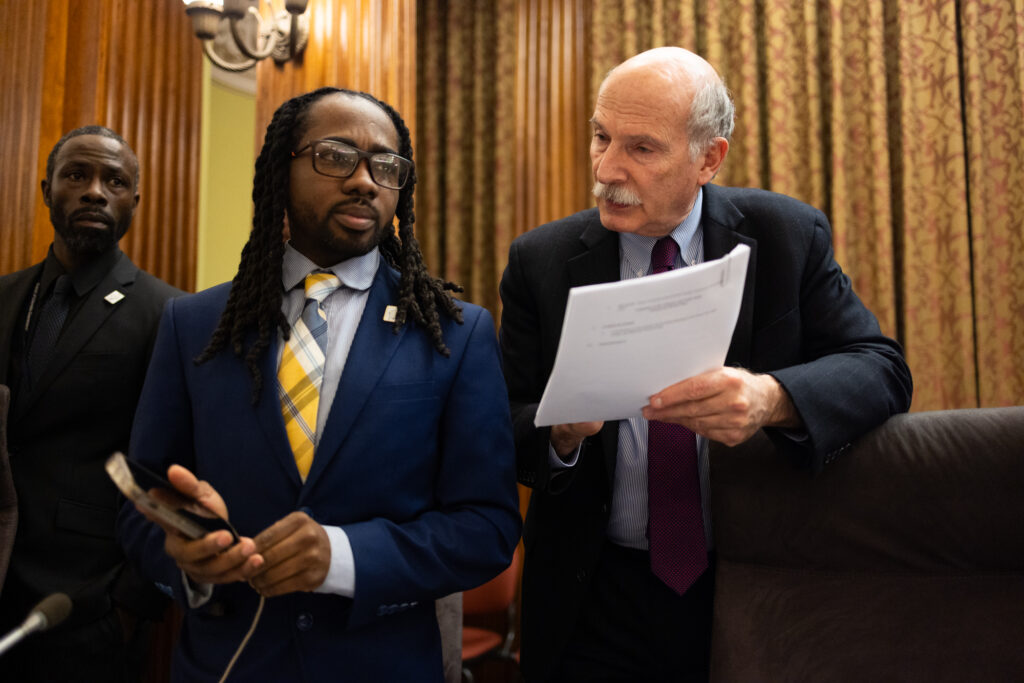The Council of the District of Columbia passed a sweeping crime omnibus bill on Tuesday in what will be the first of two votes on the legislation, the product of months of work combining proposals and initiatives centered on bringing down the uptick in criminal activity in the district.
The Secure DC Omnibus Amendment Act of 2024 passed the council with 12 “aye” votes, and one member, Councilman Trayon White, voted present. The bill will increase penalties for some crimes and create new definitions for others, as well as establish drug-free zones, increase parameters for juvenile detention, and bring back police provisions rolled back by previous district crime bills.
Despite its passage today, the omnibus will go to a second vote expected to come in the next few weeks, meaning the legislation’s language could change from what was passed on Tuesday.
The council spent nearly two hours debating different aspects of the bill as council members raised concerns about restoring some police provisions, as well as the reintroduction of drug-free zones and the ban on mask-wearing when committing crimes.

Introduced by Ward 2 Councilwoman Brooke Pinto, the omnibus bill has the support of the Fraternal Order of Police and Democratic Mayor Muriel Bowser, who has signaled previously that she would sign the legislation into law.
“My Secure DC Omnibus legislation passed the first of two votes before the Council with overwhelming support,” Pinto said in a statement following the bill’s passage. “Secure DC’s 100+ interventions will make sustainable and meaningful improvements to prevent crime, ensure accountability when crime does occur, and improve government coordination to make DC residents safer and more secure in our communities.”
Washington Councilman Phil Mendelson addressed council and public concerns on the bill, insisting that district crime can be improved in the long term by improving education and reducing poverty. However, for now, Mendelson said on Tuesday, deterrence is necessary.
Many members thanked Pinto for her work on the bill but warned that taking action to prevent crime cannot stop with the passage of the omnibus.
“In fact, our focus today is on accountability, as well it should be, but if you’ve talked to me about violence in the past and you know that I always talk about the need to focus on both accountability and opportunity,” Councilman Kenyan McDuffie said. “And we got a lot more to do by way of opportunity.”
In opposition to Pinto’s bill, many community members attended the meeting wearing black shirts with the phrase “Don’t Throw DC Under The Crimnibus.”
At one point, Mendelson had to ask the chamber to be quiet and respectful after those in the audience were laughing and coughing at Pinto.
If the bill is adopted into law following the second vote, the district will revive a 1990s-era policy called “drug-free zones,” which would declare it illegal to gather in a defined area for “participating in the use, purchase, or sale of illegal drugs” for up to five days. Both Pinto and Bowser supported the return of the policy, saying it provides the police with additional tools to combat drug activity in the district.
The legislation will also increase maximum sentences for gun-related crimes, as well as expand the definition of carjacking to make it a crime anytime the victim is not just in their car but in the vicinity of the vehicle as well. Strangulation would be deemed a felony, and the bill would lower the threshold for retail theft, making it a felony to steal $500 worth of merchandise instead of $1,000.
The hope of this legislation is to combat the significant uptick in violent and property crimes throughout Washington. Crime in the district rose significantly in 2023, ending the year with a 26% increase in total crime, violent crime rising 39%, and property crime increasing 24%. The most frequent criminal act in the district is carjackings, with motor vehicle thefts increasing by a staggering 82% in 2023.

Several amendments to the bill were introduced ahead of the vote on Monday, which Pinto circulated as an “Amendment in the Nature of a Substitute,” or ANS, which was also unanimously approved on Tuesday.
Many of the changes agreed upon on Tuesday scaled back some of the more controversial aspects of the bill. The council struck language on the anti-mask provision that would have made it illegal for residents to wear a face covering while “caus[ing] another person to fear for his or her personal safety.” The legislation will still make it illegal to wear a mask while they intend to commit a crime or intimidate, threaten, abuse, or harass another person.
White requested to clarify language on the ban on wearing face coverings when committing a crime. He asked to specify a ban on “ski masks” so as not to discriminate against people of certain religions who cover their faces.
CLICK HERE TO READ MORE FROM THE WASHINGTON EXAMINER
However, Pinto said such a clarification might ignore the other coverings used by people when committing crimes, such as bandanas or other clothes, to conceal their identity. White withdrew the amendment, so it was not included in the bill’s revision.
Other amendments include striking the proposed expansion of DNA evidence collection that would have allowed law enforcement to obtain DNA from a person upon arrest. An additional amendment allowed the district to implement a record sealing law as early as this year, should the measure be funded in the district’s budget. A final amendment would sunset the bill’s changes to pretrial detention statutes after 225 days and require that the city produce a study on its effects before that expiration date.
